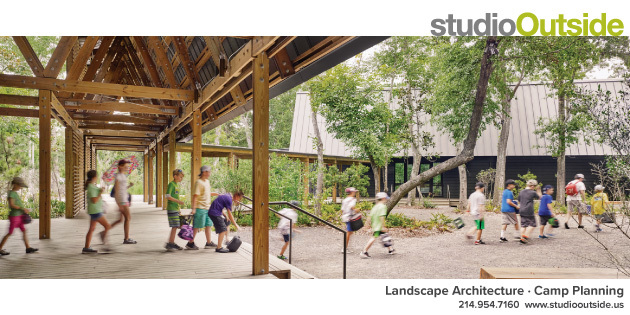Regardless of the camp where you have chosen to spend your summer, many campers you’ll work with will be “differently wired.” In fact, one in five kids have ADHD, dyslexia, giftedness, autism, anxiety, or some other type of neurodifference. The exceptional kids you’ll lead this summer may have unique challenges that can impact their experience at camp both positively and negatively.
Being prepared for kids with neurodifferences, and learning some effective counseling strategies, can make the difference between these campers having a disappointing or a successful camp experience. As their leader and guide this summer, you can be instrumental in helping differently wired campers have as positive a camp experience as their neurotypical peers.
These exceptional kids may arrive at camp accustomed to living in a world that doesn’t embrace who they really are. They may never have felt the sense of belonging they desperately need to thrive. At school and in other settings, they likely haven’t always received support to make friends and to feel they are a valued part of a community.
This summer at camp can be life-changing for your differently wired kids, because it could be the first time — under your leadership and mentorship — that they experience the acceptance and belonging every human needs.
Some of these kids will arrive at camp and in your group or activity with a formal diagnosis, while others may not. In some cases, you and your camp may have useful information from the parents ahead of time about how to support their child. It is not your job to diagnose, but it is your privilege to take steps to help each of your campers — including those with neurodifferences — have a positive camp experience.
Here are some simple guidelines to bear in mind.
1. Gather Information and Resources
If the parents have provided information about their child, read through and familiarize yourself with the camper’s needs and what has been helpful to them in other settings. Ask questions and seek guidance from experienced camp leaders who have worked with other neurodiverse campers. If you notice that a camper seems different from neurotypical kids, and you haven’t been provided with any information about them, don’t panic! Ask your camp director or other experienced staff members for guidance. They likely have resources to help, regardless of whether the parents have provided information or there is a formal diagnosis. They can also contact the parent or guardian to request more information.
2. Have an Open Mind about Timelines
Many differently wired kids develop asynchronously, so their chronological age may be out of sync with their emotional or intellectual age. For instance, a neurologically atypical child may be reading Nietzsche but struggle with simple social interactions or lack the coordination to tie shoelaces or catch a ball.
Dropping the expectations surrounding differently wired campers’ timelines will take the pressure off them and make room for practicing and developing their fledgling skills in an emotionally safe way.
3. Assume Lagging Skills, Not Bad Behavior
Most disruptive behavior by differently wired children isn’t purposefully designed to be bad or create problems — it’s the campers’ way of communicating needs. For example, perhaps they don’t know what to do or how to make a better choice. Perhaps they are processing big, difficult emotions, such as anxiety or embarrassment, and they don’t have the emotional regulation strategies to move through them in a more positive way.
Rather than focusing on discipline or punishment, get curious about what is at the root of the behavior, and talk with the camper about how to address that core issue.
4. Communicate about Behavior in Your Group
Communicate with the other campers in your group about behaviors they might see and how they can help ensure a positive camp experience for everyone.
Neurodiverse kids often benefit from having an opportunity to explain their needs to their peers. Alternatively, the camper’s parent or you as the counselor may have permission to let the other campers know how to be a good friend to their differently wired campmate. It’s always best to focus on what behaviors other campers might notice and what peer behavior can be most helpful, as opposed to talking about diagnoses.
For example, you might say something like: “Suzie is really interested in astronomy and has a lot she wants to share with us. Sometimes she has a lot to say on the topic, and she may not notice when others start to lose interest. Because it’s important to her that she shares, let’s give her time at each campfire to share some of what she knows. When you’d like to change the subject, Suzie responds positively when her friends kindly say, ‘Suzie, I’d like to talk about something other than astronomy now.’”
Or you might say, “Competitions can feel very stressful for Justin, and if his team loses, he could get upset and act like a sore loser. Instead of getting frustrated with Justin, he’ll feel better more quickly if we give him a few minutes to calm down and then invite him to do another activity with us.”
5. Ask Questions and Seek Support as Needed
If this is your first time working with neurodivergent campers, you may find yourself unsure about how to help a camper who’s having a rough time. Remember that you have a team of experienced leaders at your camp who have likely worked with other neurodiverse kids and have extra resources and knowledge to share with you. Ask around and get advice for how to problem-solve challenges in a way that fosters a deeper connection and understanding that will benefit the whole group.
6. Practice Positive Behavior and Group Management Techniques
While this approach benefits all campers, it’s especially important for your differently wired campers, many of whom may struggle with low self-esteem or feel insecure about their neurodifferences. They also can be extremely aware of your cues — sensing your frustration more acutely than other campers.
As a rule, lead and support all your campers, including those with some kind of neurodiversity, by:
- Focusing on your campers’ strengths. Point out and talk with them about cool and unique things you’ve observed. As you interact with your campers, see what they bring to the group. A high-energy camper can really add to the fun in your group. Let them know you appreciate how they get everyone pumped up for an activity.
- Catching all your campers doing things right. Let them know from the start of the camp session that you will be noticing their good behavior. When campers demonstrate prosocial behaviors, point them out. The more you point out the good behaviors, the more of those behaviors you’ll elicit from your campers.
- Reviewing the schedule and providing consistent, predictable structure for your group. If you’re a laid-back kind of person who tends not to plan ahead, you’ll have to adjust now that you have a group of kids who need you to lead them. Kids respond much better to a predictable, consistent routine and clear instructions. If your kids are not doing what you’d like them to, look for ways you can set them up for success through your leadership.
- Following the camp schedule to be sure all your campers get plenty of sleep and downtime. Kids (and adults) are at their best when they are well rested, well fed, and well hydrated. From the start of camp, be observant of and attentive to these basic needs of your campers. When a camper is not behaving as you’d like, consider first whether they need some of their basic needs better met.
- Giving plenty of warning before transition times. Nobody likes to feel rushed. Let your campers know well in advance about what’s happening next. If it’s rest hour and the next activity is in the water, you might say, “Hey, campers, we have canoeing this afternoon. In 20 minutes, I’ll remind you to get your bathing suits on, reapply your sunscreen, and get your towels, but you can start getting ready now if you need more time. Start with changing into your bathing suit.”
- Providing clear directions. Many kids benefit from step-by-step directions. Using sarcasm will often confuse kids, so don’t say the opposite of what you want or veil a criticism with a sarcastic or humorous comment. Say exactly what you’d like them to do and check for understanding.
- Debriefing with your campers regularly to check in with them. Sharing their highs and lows of the day is a simple way to find out how each of your campers is doing. While walking between activities, during meals, or at some point when you “circle up” are all great opportunities to hear from your campers.
- Checking in with your campers one-on-one. It only takes a minute or two to check in individually with each of your campers. Be sure to do so every day to see how their camp experience is going and how you can best support them.
7. Ask Your Neurodivergent Campers What They Need
These exceptional kids often have become well versed in what is most helpful for them. Don’t hesitate to ask how you can help them adjust to camp and have a fantastic experience.
If you don’t have any previous experience working with differently wired kids, don’t worry. Even parents, teachers, and specialists don’t have all the answers when it comes to exceptional kids. By being a caring, observant, and positive leader, you will be doing exactly what it takes to ensure all your campers, including your neurodivergent ones, have a successful camp experience.
You can also feel great about giving these campers a positive experience at camp, which may be the very thing they need most.
For More Information
Check out these resources to learn more about leading neurodiverse campers:
- Differently Wired: The Parents’ Guide to Raising an Atypical Child with Confidence and Hope, by Deborah Reber
- Happy Campers: 9 Summer Camp Secrets for Raising Kids Who Become Thriving Adults, by Audrey Monke
- TiLT Parenting Podcast
- Sunshine Parenting Podcast (check out Audrey’s interview with Debbie in Ep. 111)
Audrey Monke, with her husband Steve, has owned and directed Gold Arrow Camp (Lakeshore, California) since 1989. On her website (sunshine-parenting.com) Audrey shares resources for parents and youth development professionals about summer camp, parenting, and happiness. Her podcast (Sunshine Parenting) features interviews with parenting authors and experts, including camp directors. Audrey’s book, Happy Campers: 9 Summer Camp Secrets for Raising Kids Who Become Thriving Adults (Hachette, 2019), shares strategies for bringing the magic of camp home.
Debbie Reber is a parenting activist, New York Times bestselling author, keynote speaker, and the founder of TiLT Parenting, a top podcast, community, and educational resource for parents raising differently wired children. Her newest book, Differently Wired: The Parents’ Guide to Raising an Atypical Child with Confidence and Hope, came out in June 2018. After living abroad in the Netherlands for the past five years, Debbie, her husband, and 15-year-old son recently moved back to New York City.




